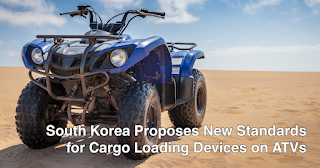KC Compliance Guidelines for Dehumidifiers in South Korea

Certification Types by Power Source Products without RF(Wi-Fi/Bluetooth) AC Power: KC Conformity Registration (EMC), KC Safety Confirmation, MEPS (Minimum Energy Performance Standard) Program DC Power: KC Conformity Registration (EMC) Products with Wi-Fi or Bluetooth AC Power: KC Conformity Registration (EMC/RF), KC Safety Confirmation, MEPS (Minimum Energy Performance Standard) Program DC Power: KC Conformity Registration (EMC/RF) Required Documents To obtain KC certification, specific documents must be submitted. Click here for the complete documentation list and certification timeline. GCA KOREA is your one-stop partner for fast, reliable support with KC certification. For questions regarding certification for dehumidifiers or other appliances, please don't hesitate to contact us. Our experts will provide prompt, accurate guidance. ※ No part of this content may be reproduced or shared without permission. Please provide proper attribution and a link to the source. Contact ...





